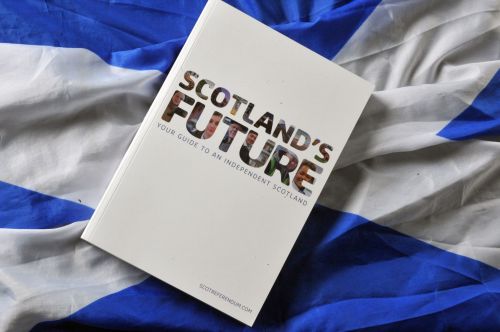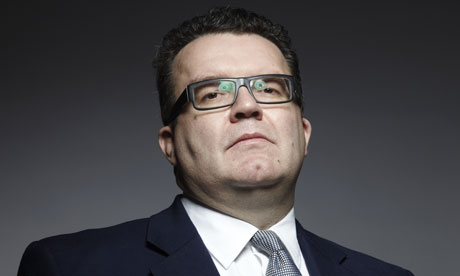First published here.
A win for independence in Scotland would have led to drastic changes to parliament in the UK including the short-to-medium term irrelevance of Labour
A little over half of those who went to bed last Thursday in Scotland, wondering what Friday will hold, woke up to the news that the United Kingdom will remain as it has been for 307 years and that Scotland will not break away to form an independent state. The campaign has been marred by allegations of scaremongering, increased verbosity of the establishment, heated debates on fiscal matters and devolution.
Irrespective of the outcome, it must be concluded that the Scottish referendum was a great celebration of democracy with extremely high turn-outs for voting. Estimates suggest that more than 80 per cent of those eligible to vote turned up for voting, compared to only more than 50 per cent who voted in the Scottish elections of 1999 when powers were first devolved.
The decision to hold a Scottish referendum was made in October 2012, by allowing the Scottish parliament to hold a referendum that was legally valid to confer independence. The terms of the referendum were a matter of great debate, but as George Eaton identifies here, contrary to most observers, it was Alex Salmond in his political astuteness who outmanoeuvred David Cameron – who, according to many, is reflective of a political class that was extremely complacent about the aspirations of the Scottish peoples. There are at least three factors Eaton identifies that helped Salmond outplay Cameron.
Westminster retains the constitutional authority to determine when a referendum can be held, and even though the initial date was September 2013, this date was moved to September 2014 in return for Salmond deciding to allow a one question vote, thereby winning another year’s worth of vital campaigning time for the Yes side of the debate. The second move Salmond made was in determining the wording of the referendum question. By managing to stave off pressure from the recommendation of the electoral commission to have the question read “Do you agree that Scotland should become an independent country?” having it read instead as “Should Scotland be an independent country?”, Salmond found a much easier way of channelling nationalist energy towards an eventual yes vote. The other vital concession Salmond managed to garner was the right for 16-17 year olds to vote in the referendum, even though voters in this age group do not vote in UK or Scottish parliamentary elections. Young voters are more inclined to vote for independence, as this YouGov poll reveals.
The complacency of the Better Together campaign, headed by Alistair Darling, was evident from the very beginning with Westminster taking for granted that Scotland would vote to remain in the UK. This notion was not without basis, as the opinion polls consistently showed that those in favour of voting No outflanked those in favour of voting yes by a double-digit margin. Then came the disastrous second debate between Alistair Darling and Alex Salmond, where Salmond vociferously and passionately argued about the case for independence, managing to appeal to many of those who were dithering on which way to go. Even though the debate wasn’t the primary reason, it was probably the last straw on the camel’s back. The double-digit lead that the No campaign had held for so long eviscerated over a matter of weeks and panic hit the No camp when aYouGov poll on 6 September showed the Yes camp to be in the lead for the first time.
The panic that set in was probably good for the Yes camp and was just the bad news that was needed to galvanise the whole of Westminster together. All three leaders of the main parties went on a very strong door-to-door campaign, even to the extent of cancelling Prime Minister’s Questions last Wednesday. Further powers of devolution were promised to the Scottish parliament and last ditch attempts were made to make packages of political appeasement that would swing the momentum from the Yes, back to the No.
It is also worth mentioning here that there were many voters who, indeed, wanted to stay in the union and vote no to independence, but due to the deep involvement of the toxic establishment and their support for the No camp, many of these conscious No voters were deterred. Right-wing media organisations, the BBC, big corporations and banks all fought vehemently against independence and this galvanised many voters to look at this vote as a statement screaming of anti-establishmentarianism. It must be mentioned however, that Rupert Murdoch, that great icon of the establishment is an avid fan of Alex Salmond.
It is also important to note as Owen Jones does here, that the same establishment that put its weight behind the No campaign will, similarly, be taking part in the alleged scaremongering tactics against Ed Miliband and the Labour campaign come the General Election in 2015. Labour, which was complicit at worst and connived at best with these tactics, will have to know that some of their friends in the No campaign will be some of their worst enemies in a matter of a few months.
In all of this, one thing that is glaringly evident is the second coming of Gordon Brown. Brought up by a father who was a Church of Scotland pastor, Gordon Brown is also the author of Courage, a compilation of eight biographies of those who have shown resolve and courage during times of difficulty. Sadly for many on the left of the spectrum, Brown got lost in Tony Blair’s New Labour, and many wonder what would have become of Labour if Brown inherited John Smith’s leadership of the Labour party as he was touted to, instead of Tony Blair.
It is widely thought that this passionate speech by Gordon Brown, on the last day of campaigning tipped the undecideds (about 14 per cent at most times) in favour of voting no and that it was this momentum that helped carry the No camp along.
What would have happened if the Yes camp had won?
The No camp won, and all is well. But what may have happened if it went the other way? David Cameron had made it clear that he would not resign if Scotland decided to vote in favour of independence, and indeed he would not be constitutionally obliged to resign.
I am of the opinion that New Labour’s advent in 1997, which led to the negligence of the welfare of the working class and, therefore, the erosion of Scottish Labour – which gave rise to an otherwise emasculated Scottish National Party (SNP) in the Scottish parliamentary elections that followed – is more to blame. Those who wield the knife out to Cameron as the prime minister who potentially oversaw the end of a 307-year-old union should have a memory that stretches far beyond 2010 when he became prime minister.
If Scotland had voted in favour of independence, there would have been a Tory backbench revolt that may have culminated in Cameron resigning. This would mean that Theresa May or George Osborne would have most likely become Tory leader, unless William Hague would have been recalled as a caretaker leader to steady a wobbly Tory ship. What is less spoken of is that Scottish independence may have also ended Boris Johnson’s leadership ambitions, if not delay them. Of course, this uncertainty in the Tory camp would translate into voter discomfort and Labour would have solidified its current lead to land Ed Miliband in Downing Street.
However, if Scotland legislatively moved out of the United Kingdom in 2016, it would have nullified the mandate of Labour MPs representing Scottish constituencies. Going by the current electoral standings, Labour would lose more than 40 MPs in Scotland, whereas the Tories would lose their one MP (as the joke goes – there are more pandas in Edinburgh than there are Tory MPs in Scotland). Thus, with such a colossal haemorrhage of MPs to independence, Ed Miliband would no longer be the leader with the largest party, and parliament would have to be dissolved, and General Elections will have to be recalled. When this happens, the Tories will romp home to what most analysts believe will be a clear majority, coupled by the fact that Labour will be electorally and arithmetically much weaker without the legal recognition of Labour in Scotland. As such, Labour will be transformed into a mere ideological sister party and the Labour coffers will be much weaker than the Tory funding to refight in a general election. It must be noted that this current electoral status quo remains only due to the currently incumbent culture of hung parliaments.
The Tories would then have proceeded to change electoral boundaries to suit them and that would cast Labour into the wilderness until it found inroads back into the mainstream.
Thus, should Scotland have become independent, we may have been looking at an increasingly right-wing England in the medium to long term.
What happens now?
Scotland has however voted against independence, and the speculations made above will not come to fruition, yet. Therefore, political life in the union will go on as it has been for the last three centuries.
However, the three party leaders have to make sure they do not renege upon the promises made to give increased powers to the Scottish parliament. Tory MPs are already preparing to revolt if greater devolution packages are showered upon Scotland. In his speech on Friday, Alex Salmond referred to the fact that Scotland isn’t independent “yet”, leaving room to speculate that if Westminster breaks its promise for greater devolution in Scotland, the SNP may perhaps take the route Quebec took when there were successive referenda that plagued Canadian politics in the mid-to-late 1990s.
As a friend of mine specialising in constitutional law noted, “This may have been a defeat for secession but it was definitely a victory for self-determination,” and the Scots as a people should be proud of this.
Image from here.



